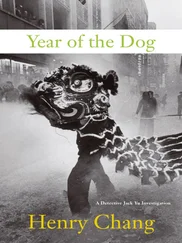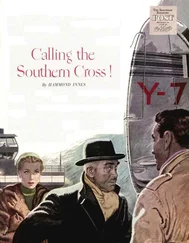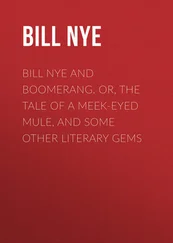But soon night passed into early morning, and one by one the crowd trickled out. There were only a few stragglers left, half asleep in their seats and Eli at the bench, numb except for his fingertips, which were bright and eager.
Suddenly the door swung open and he turned to see Homer Teague filling the frame.
The man looked different somehow. Brittle. Pale. From his color, Eli could tell the man had been drinking. He’d been done up proper in a waistcoat and hat as if he’d just come from a party. Quietly, he crossed the floor and took a seat by the piano, the same seat that his sister had taken.
Eli became unnerved and stopped playing.
Go on, Teague said. His voice was soft. Almost childlike.
Eli didn’t move. It took only a moment for the room to empty. Soon they were alone — Teague and him. From the open door blew a bad wind. He could see the shadows twisting on the floor as the oil lamp squeaked on its hook.
What’s the matter?
Eli swallowed hard. He set his hands down on the keys, unsure of himself. His hands were two dead slabs on his arms.
Play a blues, Teague said. That is what you do, isn’t it? Go ahead. Play.
Eli turned back to his keys — his throat suddenly dry. The liquor was a weight behind his face. He knuckled his fingers and tried to rub the buzz out of the joints. His big hands floated up and rested over the ivory. The pedal clunked into its place.
And then at once, his fingers fell through the keys. A chord exploded from the pinewood piano. Then another. A rush of sounds and rhythm. His hands jumped and scurried and bit. Black keys, white keys. Pounding hard and soft, in unison and apart. Eli could feel the wood cracking around him. The walls were shaking.
A splinter burst from the body of the piano. Eli winced and grabbed his stinging cheek. He could feel the blood burning in his face. There was a blemish on the piano, a small dark patch he had not noticed before. Slowly, his eyes adjusted. It was a hole in the panel, small and clean where the bullet had just embedded itself. Eli turned. Teague’s hand was full of smoke.
His eyes were red and pocketed, staring at the floor. More than anything, he looked exhausted. He slumped in his chair, breathing heavy. Teague let the weight drop from his hands. Slowly, Eli rose from the bench. He began to run.
THE SHERIFF FOUND HIM HOLED up in an old farmhouse two miles from the camp. He was curled up inside the chicken coop, among the feathers and the shit, his hands bleeding from climbing wire. He turned his head away from the sheriff’s light and moaned softly. The sheriff stood over him, calm and sad.
Come on, son, he said as he helped him up. You got a few things to answer for.
He felt the man’s touch on his shoulders, and a wave of grief rose into his throat. He stepped out into the field. It was low flat tract, without grass or trees or shrubs. A place where nothing grows and the earth has no memory, and the thought came to him that all that is borrowed must one day be repaid.
The boy let in the just-rained air, cool and dewed, and stuck his head out the window. Overhead, the sky was swollen. The cottonwoods were in full bloom, their catkins fat and set to bust. From the third-story window he could make out the road that led out to Bruce proper, toward the Skuna River, and beyond it the railway station. He raised the window higher to give himself room, then he climbed backward out onto the ledge. He’d grown four inches in the last year and now he felt the pinch behind his knees as he anchored his large hands against the wall and slipped his weight outward. The roof edge was slick with rain. His fingers hooked and locked into the grooves. He let his body dip out, his full weight pulling against his fingers hard and sudden. For a moment he hung, groundless, outside the Hotel Beau-Miel, before hoisting himself onto the roof.
Farther into Bruce, he could see rows of houses, the movie theater, the restaurant, the market. A car cornered onto the main stretch. From where he stood, it looked like a large beetle smashing through the puddles.
He went low onto his belly, watching it from over the shingles. The car skidded and came to a halt in front of the hotel. He waited, watching it idle.
A door opened.
At first all Robert could see of the new girl was her green slicker. It floated beside the car, climbing out beneath Miss Lucy’s waiting umbrella. The car started up suddenly, and the girl slipped into a mud puddle.
Miss Lucy picked the girl up and hurried her into the house.
When he was sure they’d gone in, Robert made his way back to the edge of the roof. He peered down at the three-story drop and lowered himself down, feeling for the sill with his toes. He went inside, closing the window behind him. He tidied the room, tucking the sheet firm under the mattress and fluffing the pillows. This was to be the new girl’s room, and Miss Lucy had instructed him to be thorough. He gave the place a once-over, then entered into the hall.
Robert!
Miss Lucy was still in her traveling clothes. A powder-blue floral-print dress and a string of pearls. She had let her hair down and the gray had started to show, striping faint over her left ear. She held out the green slicker and a yellow dress splattered with mud.
Put this in with the day’s wash.
Yes’m.
Robert took the bundle from her. He turned to go but Miss Lucy stopped him. She looked him up and down, and he realized then that the front of his coveralls was wet.
What I tell you about staying off my roof?
Sorry, Miss Lucy.
People don’t come here to get spied on.
No, Miss Lucy.
You’ll break your fool neck one day.
Yes, Miss Lucy. Sorry, Miss Lucy.
Miss Lucy shook her head.
You’re dripping on my floor, she said, waving him away.
THE HOTEL BEAU-MIEL WAS MISS Lucy’s baby. She scrounged and saved for thirteen years selling her fish, secreting a dime on every dollar of her earnings for the place. There were rooms, and beds, and a desk out front, and a book for folks to put their names. John Smith. John Doe. John Jones. And the women took the men’s coats and their hats and their hands and showed them up to their room, their mattress, their spread and pillow. They’d show them how the curtains slid shut on the rollers, show them how to lock the door, how to lay their shirts and pants, so neat so clean, on the chair backs to keep from wrinkling. They’d show them and then they’d show them — fifteen for an hour, twenty-five for three — anything they’d want to see.
On a good day, the house groaned with customers — a man to every room and to every room a bed and to every bed a girl, sometimes two if your pockets could keep. And in the front hall, and in the kitchen, and in the parlor, you could hear them lowing. Even in the jam cellar, where Robert slept and kept his quiet hours, dark save for the single cast of sunlight on the wall, the dust would roll from the wood slats, shook loose from all their thumping. He watched the motes spangle and gust and fall in drifts, and once, from through the pane, he saw float down a woman’s stocking.
Men would come for miles, their hair slicked back and pomade sweet. Miss Lucy would show them in one at a time and they’d smile and sign her big book and open their wallets. And it was Robert who broomed the floors and beat the dust and mopped the stoop. It was Robert who changed the sheets, boiling them with the gowns, the kimonos, the blouses, the dresses and skirts and underthings.
Out in the yard, Robert stocked the pit with firewood and lined it with coals and old newspaper. The sun climbed overhead, baking the late morning. He spoiled six matches trying to get a fire lit, dropping their crooked heads in the grass. His daddy had showed him once, old newspaper lined with hog fat to bait the flames. When a match caught, he cupped it with his hands and brought it careful to the pilings. He moved the tub over the flame and set it on its moorings. When the water started to boil, he cut a brick of soap into three pieces, then stirred it into the tub. After some time, the water started to grease and foam. He dropped the load in and stirred it with a long paddle. After the soap had lathered and the water had worked into a boil, he heaved the tub off its moorings, fished out the clothes, and let them cool on the grass. Then he dumped the remaining water over the coals and went inside.
Читать дальше












